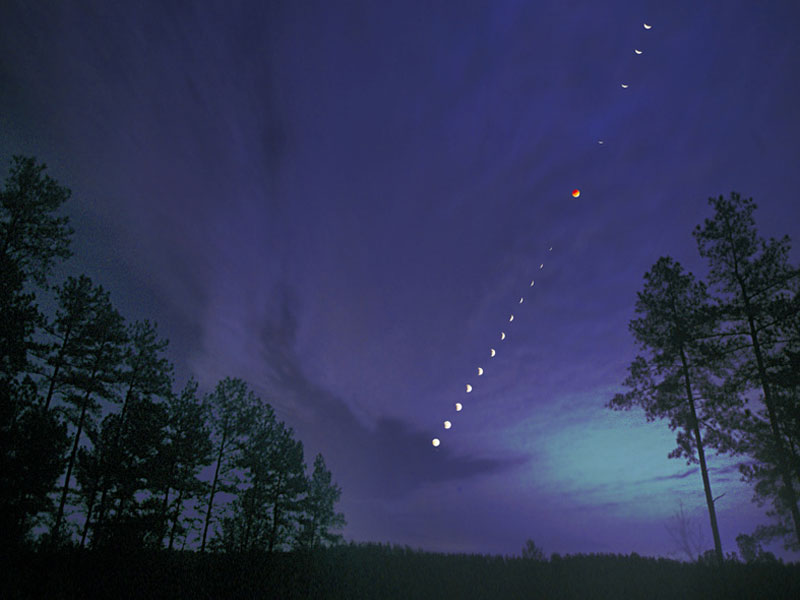Credit & Copyright: David Cortner
Explanation:
This coming Tuesday, our Moon will
appear to disappear.
A similar total lunar eclipse is seen above in a
time lapse image captured in 2003 over
North Carolina,
USA.
As the Earth moves between the Moon and the Sun, the
Earth's shadow fell on the moon, making it
quite dark.
In the above picture the Earth's rotation, multiple exposures, and
digital enhancements are used to create a time-lapse effect that dramatizes how the
Moon looked as it faded out and re-appeared during the three hour
lunar eclipse.
As the Earth's shadow
engulfed the Moon, the lunar images became less and less bright,
practically disappearing during
totality.
At this time, the Moon, which normally shines by
reflecting direct sunlight, shone only by sunlight refracted through the
Earth's atmosphere.
The next total lunar eclipse won't be visible from Earth
until February 2008.
1999 2000 2001 2002 2003 2004 2005 2006 2007 2008 2009 2010 2011 2012 2013 2014 2015 2016 2017 2018 2019 2020 2021 2022 2023 2024 2025 |
Январь Февраль Март Апрель Май Июнь Июль Август Сентябрь Октябрь Ноябрь Декабрь |
NASA Web Site Statements, Warnings, and Disclaimers
NASA Official: Jay Norris. Specific rights apply.
A service of: LHEA at NASA / GSFC
& Michigan Tech. U.
|
Публикации с ключевыми словами:
total lunar eclipse - лунное затмение - полное затмение
Публикации со словами: total lunar eclipse - лунное затмение - полное затмение | |
См. также:
Все публикации на ту же тему >> | |
